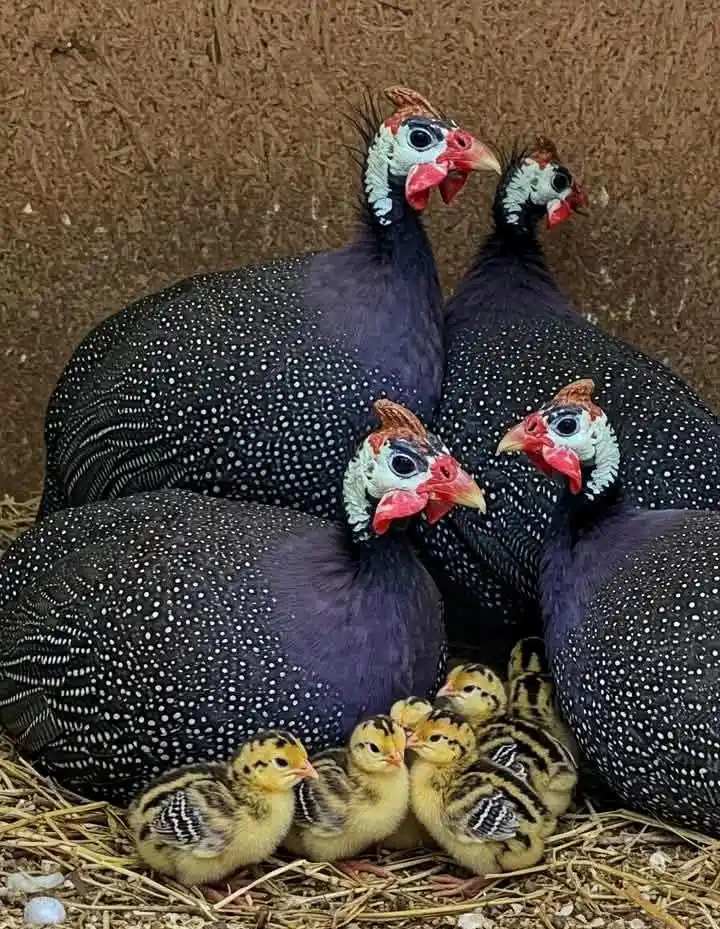
iMaDe FARMs
June 9, 2025 at 08:23 PM
*TIPS YOU NEED TO KNOW BEFORE YOU START GUINEA FOWLS FARMING!👇😍*
GUINEA FOWLS are edible and reared for their meat, eggs, and ornamental value among other many reasons.
GUINEA FOWLS Farming is FUN and very PROFITABLE especially if you have the RIGHT knowledge on HOW to manage your farm!
1. *SHELTER:*
Provide a safe, spacious shelter that protects your guinea fowl from predators, wind, rain, and cold. The shelter should have roosts, nesting boxes, and absorbent litter. Guinea fowl like to roost high up, so include high roosts in their coop.
2. *FOOD:*
Guinea fowl need a higher protein feed than chickens. You can start them on a 28% game-bird/turkey ration, then switch to an 18% feed for weeks 5–8, and then a 16% layer mash after week 8. You can also supplement their diet with mealworms, insects, and greens like leafy alfalfa.
If you're interested in starting a Guinea Fowls farm, you can ORDER a copy of the Guinea Fowls farming PDF Guide Book!
*THE BOOK COVERS EVERYTHING ON:*
🤍 Breeding, Sexing and Sex Ratio
🖤 Diet and Feeding
🤍 Collection and Storage of Eggs
🖤 Incubation of Eggs Using an Incubator
🤍 Incubation of Eggs Using Chicken
🖤 Treating for Pests and Diseases
🤍 Care of Keets ETC!
*To ORDER for your copy of the Guinea Fowls farming PDF Guide Book via WhatsApp, please FOLLOW this link:* https://wa.link/ta90sf
YOU WILL ALSO BE ADDED IN ONE OF OUR *iMaDe FARMs* WhatsApp groups after you have received the PDF guide book!
3. *WATER:*
Provide clean water at all times, and make sure it's lukewarm. Cold water can make them very sick.
4. *SPACE:*
Guinea fowl need space to roam during the day, such as an enclosed run. They also need a sturdy fence to keep them safe from predators.
5. *DUST BATHING:*
Provide a dust bathing area with loose dirt where the guinea fowl can bathe together. Dust bathing is a natural way to control external parasites.
6. *EGGS:*
If you want to collect guinea eggs, provide one nesting box for every four to five guinea hens. Keep the hens in their coop until noon each day to encourage them to lay eggs inside.
7. *HEALTH:*
Guinea fowl are generally hardy and disease-free, but they can get sick from poor hygiene or bacteria infections. Be on the lookout for common health issues like mites, lice, respiratory infections, and coccidiosis.
8. *CLIMATE:*
Guinea fowl adapt to most climates, but they don't like wet or cold snow. They prefer warm temperatures.
*NOTE:* We're not selling the fowls/eggs!
Pictures posted for education purpose ONLY!
Learning with *iMaDe FARMs* 🧡🤍💚

❤️
👍
😍
🙃
4